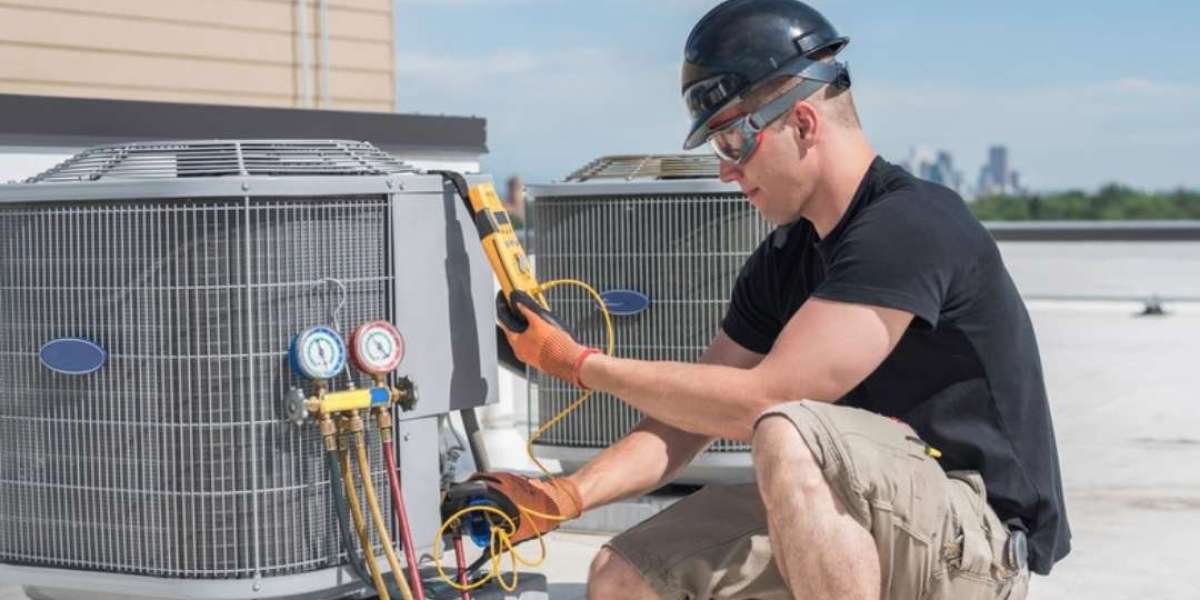Introduction
Starting an HVAC business can be incredibly rewarding, both financially and personally. This industry plays a vital role in keeping homes and businesses comfortable, and with climate control needs on the rise, it’s an ideal time to enter the field. However, diving into the HVAC world involves careful planning and preparation. Let’s take a deep dive into what it takes to launch and run a successful HVAC business.
Why Start an HVAC Business?
Importance of HVAC Services
HVAC services have become essential to both residential and commercial clients. From new installations to routine maintenance and emergency repairs, HVAC businesses offer critical solutions for comfortable living.
Rising Demand in the Market
With growing urbanization and increasing awareness of energy-efficient climate solutions, the HVAC industry is expanding. People are not only seeking comfort but also sustainable energy solutions for heating and cooling, making HVAC services highly desirable.
Researching the HVAC Industry
Market Research Essentials
Understanding the local market is key before starting your HVAC business. Research the demand for services in your area, common client needs, and current pricing trends. This research can help you identify a niche and stand out from competitors.
Analyzing Competitors
Analyze local competitors to understand what they offer and how you can differentiate your business. Look at their marketing strategies, pricing, and customer reviews. This insight can guide your business plan to address service gaps in the market.
Creating a Business Plan
Defining Your Niche
To gain a competitive edge, consider specializing in energy-efficient systems, residential or commercial HVAC, or specific technologies like smart thermostats.
Setting Goals and Objectives
Outline clear, achievable goals for the short and long term. This could include reaching a certain number of clients, expanding service areas, or obtaining specific industry certifications.
Crafting a Marketing Strategy
Your business plan should also include a marketing strategy that addresses both online and offline channels. This will be crucial for getting your first clients and establishing your reputation.
Securing Funding for Your HVAC Business
Exploring Funding Options
Launching an HVAC business requires capital for equipment, training, and licensing. Look into funding options such as small business loans, grants, or even potential investors who may be interested in a profitable industry.
Budget Planning
A detailed budget plan will help you manage your finances effectively. Make sure to account for both startup costs and ongoing expenses, such as fuel, maintenance, and payroll.
Licensing and Certifications Needed
Understanding HVAC Certifications
HVAC technicians need various certifications to handle equipment and refrigerants safely. Make sure your team holds necessary certifications, such as EPA Section 608, which is crucial for handling refrigerants legally.
Local and State Licensing
Ensure that you are fully compliant with local licensing requirements, as they vary by region. Research your state’s specific licensing needs for HVAC businesses.
Choosing Your Business Structure
Sole Proprietorship vs. LLC vs. Corporation
Determine which business structure best meets your needs. Many HVAC startups prefer LLCs for their liability protection, while others may benefit from the flexibility of a sole proprietorship.
Tax Implications
Consider the tax implications of each structure. LLCs and corporations may offer tax advantages, which can help save costs as you grow.
Building Your Brand
Logo and Branding
Branding is an essential part of creating a recognizable business. Invest in a professional logo and develop a brand identity that reflects your values and services.
Developing an Online Presence
An online presence is crucial for visibility. Create profiles on social media platforms and Google My Business to reach clients locally.
Creating a Website
Essential Website Features
A website is your digital storefront. Include pages for services, contact information, testimonials, and a blog to educate customers and boost SEO.
SEO for HVAC Businesses
Optimize your website for search engines to attract organic traffic. Use relevant keywords like "how to start an HVAC business" to rank for queries related to HVAC services.
Setting Up Your Equipment and Inventory
Sourcing Reliable Equipment
Invest in high-quality tools and vehicles for your team to deliver efficient services. Work with reputable suppliers to ensure durability and reliability.
Maintaining Inventory Levels
Keep a well-stocked inventory of parts and essential equipment. Efficient inventory management ensures faster service delivery and customer satisfaction.
Hiring and Training Staff
Skills Needed for HVAC Technicians
Look for technicians with technical skills, certifications, and experience in customer service. Training programs help maintain high standards across your team.
Training Programs and Safety Measures
Ensure that all team members understand safety procedures and industry best practices. Regular training sessions keep everyone updated on new HVAC technologies and standards.
Conclusion
Starting an HVAC business may seem challenging, but with thorough preparation and a commitment to quality, you can build a successful enterprise. From market research to scaling, each step in this guide will help you create a sustainable business that meets the demands of a growing industry. Now is a great time to turn your HVAC dreams into reality—good luck!
FAQs
What is the initial investment required to launch an HVAC company?
Starting an HVAC business can cost anywhere from $5,000 to over $100,000, depending on factors like equipment and licensing fees.
Do I need a license to start an HVAC business?
Yes, HVAC professionals must hold relevant certifications and licenses according to state regulations to operate legally.
How long does it take to become certified in HVAC?
Certification timelines vary, but it typically takes six months to two years, depending on the program.
What’s the most profitable HVAC service?
Specialized services like energy-efficient HVAC installations and commercial contracts are often highly profitable.
How can I get more clients for my HVAC business?
Focus on digital marketing, local SEO, and excellent customer service to attract new clients and build a loyal customer base.








